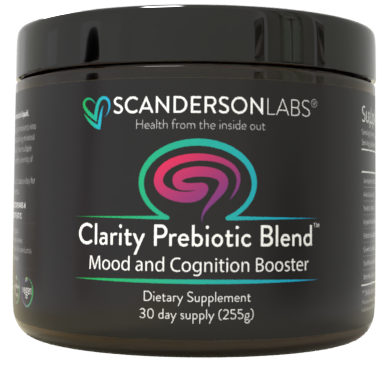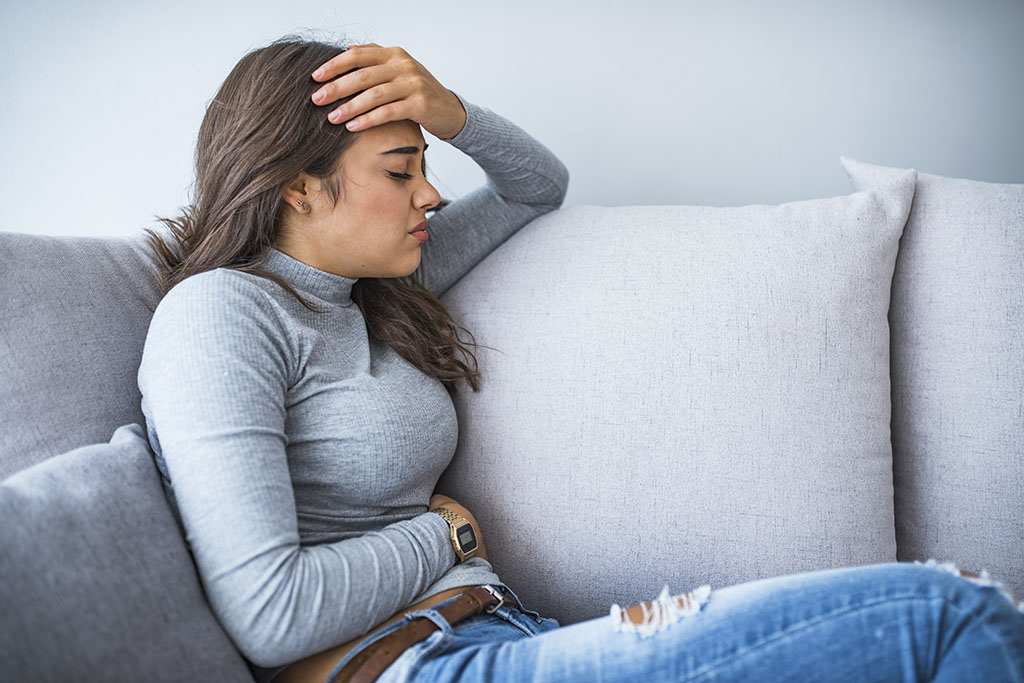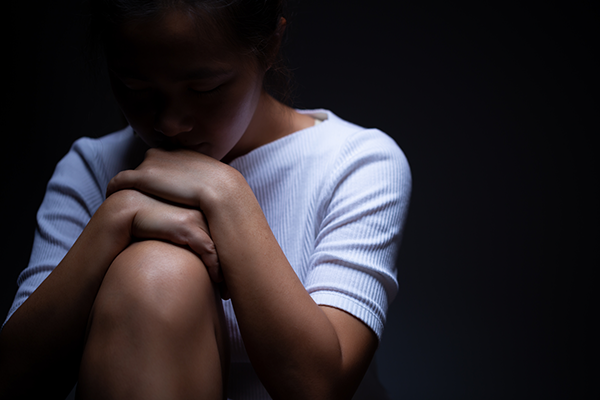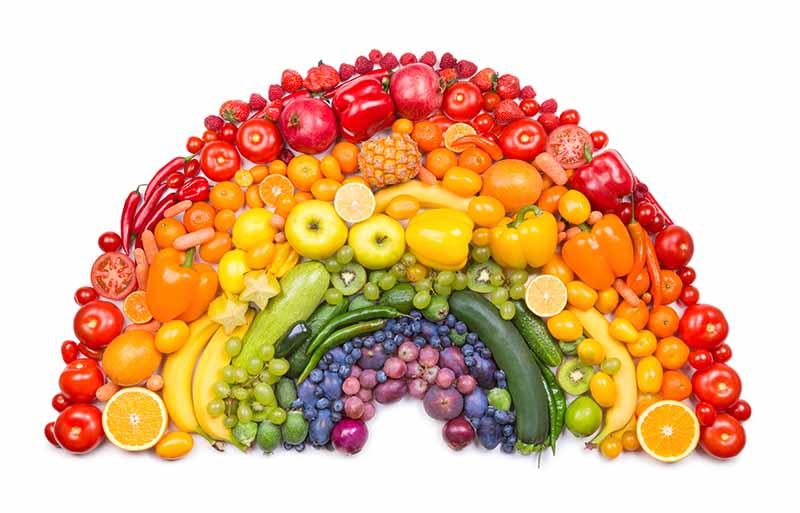The Gut-Brain Axis Is More Important Than We Thought
A new study highlights the gut-brain connection in psychiatric patients.
Gut-brain research continues to provide extraordinary insight into the effect microbes have on our mental health, and a new Chinese study ups the ante. If you are depressed or anxious, how likely is it that the cause is gut-related? Is this something that psychiatrists should be looking at, or can they safely ignore it in favor of standard therapy? The new study may upend the status quo.
A Little Background
There is no doubt that dysbiosis—an imbalance in the gut microbiota—can cause mental perturbations. Even broken bits of bacteria can have an impact.
For example, if you inject a person with fragments of a bacterium’s cell wall, called lipopolysaccharide (LPS), within minutes they will become highly anxious. Mice have a similar reaction, suggesting that this effect may be a common outcome in animals. And despite the attempt by the blood-brain barrier to sequester these bodily insults, inflammatory molecules, and bacterial toxins may subsequently be found in the brain.
In mouse studies, injecting LPS causes them to retreat to a corner and cower. That’s not the only way to bring them down. When mice or rats are given fecal matter from a depressed human, they start to exhibit similar depressive behavior. This not only shows causality; it also demonstrates cross-species causality. These fecal transplant studies provide definitive proof that microbes can transmit depression. Or, as UCC researchers John Cryan and Ted Dinan put it, microbes can “transfer the blues.”
Sickness Behavior
More prosaically, when you get food poisoning or the flu, sickness behavior results. That joyless demeanor is often indistinguishable from depression. And, at its root, it is caused by microbes, including bacteria, viruses, fungi, or protozoa that have escaped the gut and entered the bloodstream. These observations, in both animals and humans, show that certain microbes can cause depression and anxiety. But is that the same as clinical depression and anxiety or simply an intriguing coincidence? How many cases of depression or anxiety are actually caused by gut microbes?
Most psychiatrists today admit the possibility of microbial involvement, but often think it’s a marginal phenomenon. The new study from China makes it clear that the connection is far stronger than we may have realized.
The researchers looked at patients with depression and found an alarming trend: over 70 percent of them had GI symptoms. Perhaps more importantly, the worse the GI problems, the worse the depression. The study involved 3256 patients from the Chinese National Survey on Symptomatology of Depression (NSSD), and it is an eye-opener about the importance of the gut-brain connection in psychiatry.
Researchers have long known that gut issues often involve mental issues. Up to 80 percent of patients with IBS or IBD also suffer from depression or anxiety. Sadly, most of them never seek help for their mental disturbances. This represents a huge overlap between gut and brain issues, but does it demonstrate causality?
It Started with Mice
We have known since the seminal observations of Nobiyuko Sudo in 2003 that germ-free mice behave differently. That was a shocker: How in the world could the absence of microbes affect behavior?
Further studies by John Cryan and Ted Dinan showed that certain microbes—which they dubbed “psychobiotics”—actually had a salutary effect on mood and cognition. Ted Dinan is a psychiatrist, and based on this research, he now includes probiotics in his practice, especially for those patients who are averse to pharmacological drugs.
Why Microbes?
By cell count, you’re only half-human. The other half is microbial, luxuriating in the mucus that lines your entire gut, from stem to stern.
These microbes aren’t just window dressing. They are the first line of defense against the marauding pathogens that find their way into our GI tract. Before our vaunted immune system is even aware of those bad actors, your own beneficial microbes are busy poisoning, starving, stabbing, and smothering them. Without our own homegrown beneficial bacteria, we wouldn’t make it through a single day.
But if our microbes get out of balance, say because of food poisoning or antibiotics, they may not be able to do their jobs. That can lead to dysbiosis, leaky gut, and inflammation. That, in turn, may be an underlying cause of depression and anxiety.
Biology is Complicated
So far, the story is pretty compelling that dysbiosis can cause depression and anxiety. But biology is notoriously complex. For one thing, the gut-brain axis turns out to be bidirectional. Stress can affect your brain, and that—surprisingly—can then affect your microbes. That assault on your microbes can lead to dysbiosis, thus amplifying the effect of the original stress. These kinds of feedback loops are common in nature, and they make untangling the biology exasperating.
So, does the gut rule the brain, or does the brain rule the gut? The humbling answer is both. But a vicious cycle like this can be interrupted at both ends.

BUY ON AMAZON
Improving your gut with a better diet (more fiber and ferments) can lower inflammation and improve your mood. If you can’t get enough fiber in your diet, consider probiotics (live bacteria) or prebiotics (food for good bacteria).
Amazingly, treating your mood with cognitive behavioral therapy and mindfulness techniques can also improve the balance of your gut microbes. These psychological treatments have been shown to reduce flare-ups and relapse in patients with IBD and IBS.
What’s the Verdict?
There are many reasons for depression and anxiety, including stress, bereavement, chronic pain, abuse, medications, and genetics. But even these non-microbial vectors may be exacerbated by gut dysbiosis. The biology is frustratingly complex, but no one is denying the connection between the gut and the brain. It may be a messy, two-way street, but it is nevertheless a crucial avenue of exploration.
In the face of this accumulating evidence, it is hard to see the gut-brain axis as a fringe concept in psychology; it deserves some topline focus. If psychiatrists aren’t looking at their patients’ gut issues, they may be missing an important factor.
References
Jia, Huang, Cai Yiwen, Su Yousong, Zhang Ming, Shi Yifang, Zhu Na, Jin Feng, Peng Daihui, and Fang Yiru. “Gastrointestinal Symptoms During Depressive Episodes in 3256 Patients with Major Depressive Disorders: Findings from the NSSD.” Journal of Affective Disorders, February 17, 2021.
Copeland, Shannon, H. Shaw Warren, Stephen F. Lowry, Steve E. Calvano, Daniel Remick, and the Inflammation and the Host Response to Injury Investigators. “Acute Inflammatory Response to Endotoxin in Mice and Humans.” Clinical and Diagnostic Laboratory Immunology 12, no. 1 (January 1, 2005): 60–67.
Kelly, John R., Yuliya Borre, Ciaran O’ Brien, Elaine Patterson, Sahar El Aidy, Jennifer Deane, Paul J. Kennedy, et al. “Transferring the Blues: Depression-Associated Gut Microbiota Induces Neurobehavioural Changes in the Rat.” Journal of Psychiatric Research 82 (November 2016): 109–18.



